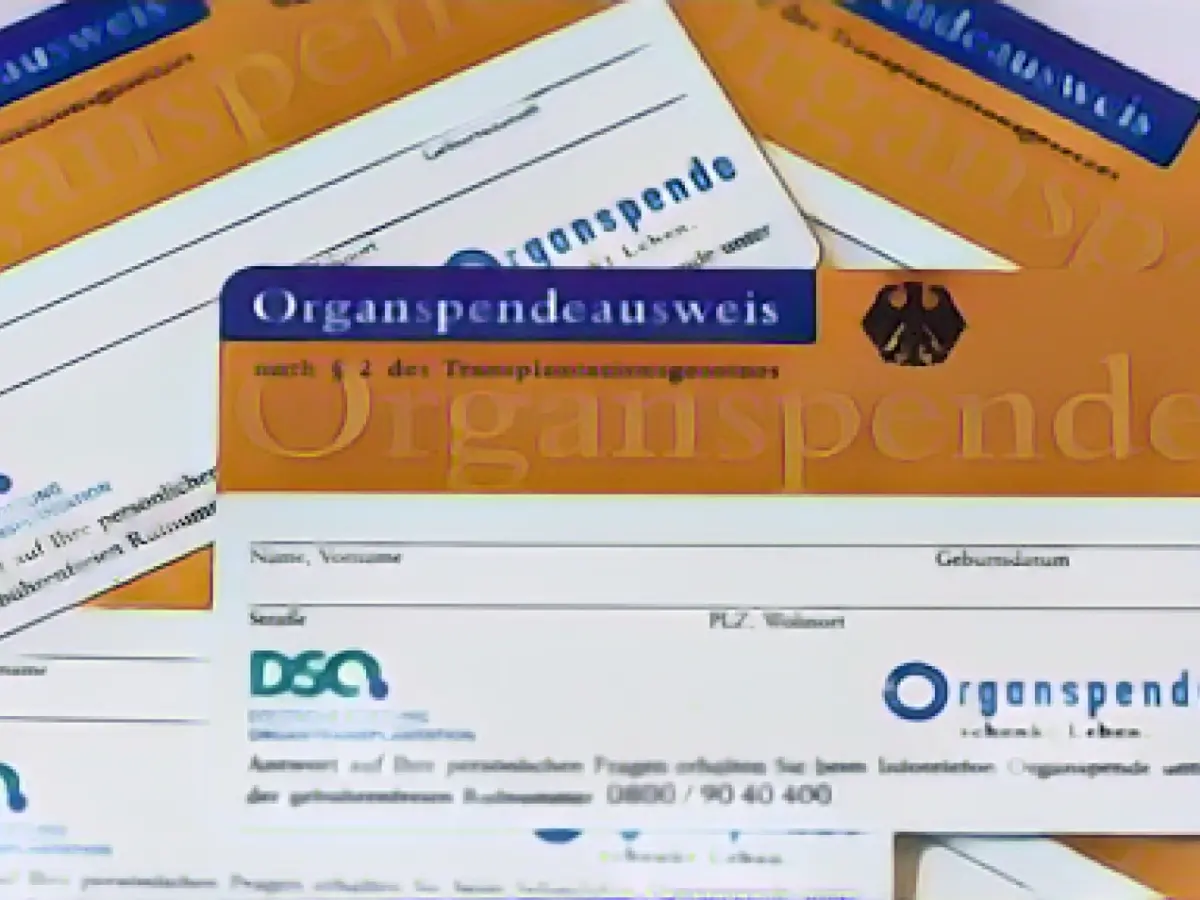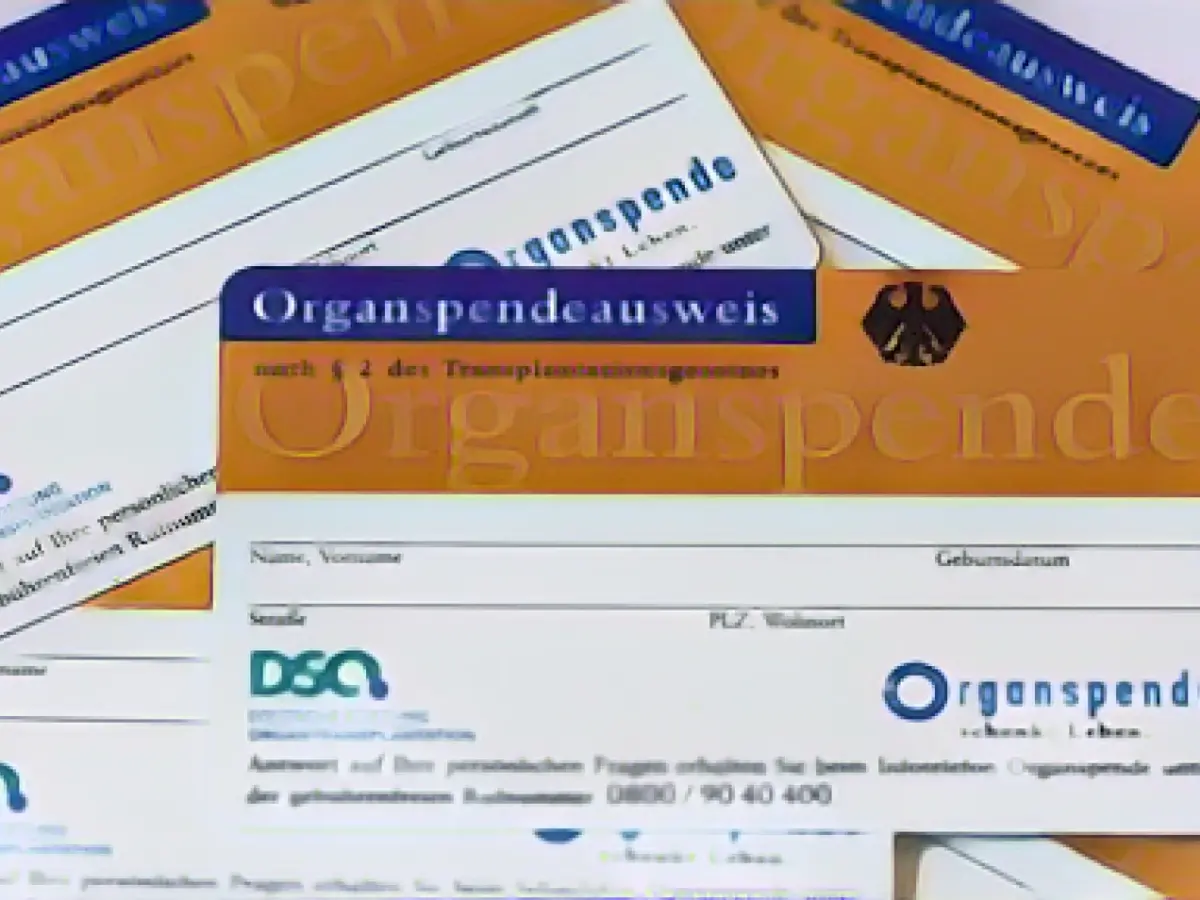Encouraging Organ Donations: A Lottery Approach Might Just Work
Two German economists propose an unconventional solution to address the organ donor shortage: a lottery. Hanno Beck from Pforzheim University and Aloys Prinz from the University of Münster suggest administering an annual lottery for organ donor cardholders, offering prizes such as ten, five, and one million euros. The proposal has garnered mixed reactions, with some questioning its feasibility due to Germany's current legal restrictions on lotteries for promoting organ donations.
Lotteries as an Organ Donation Boost
Utilizing lotteries as an economic incentive is a common practice in various countries. In Malaysia, Taiwan, Chile, Puerto Rico, Brazil, and the Philippines, every transaction or invoice with a unique registration number participates in a lottery, aimed at reducing tax evasion at checkout. Beck and Prinz argue that the attention and publicity surrounding an organ donation lottery can stimulate more individuals to become organ donors, potentially relieving the long-standing shortage in Germany.
Challenges and Future Considerations
Unfortunately, initial reactions to the proposal have not been optimistic. The German Transplantation Society (DTG) cites the lack of an organ donor registry in Germany as a primary obstacle to implementing lottery incentives. Moreover, legal considerations establish contractual compliance for organ donation as voluntary and altruistic, a principle that would be challenged by the potential introduction of monetary incentives.
However, Beck and Prinz acknowledge challenges yet recommend addressing potential pitfalls, such as ensuring healthy lifestyles among prospective donors. To maintain eligibility, they suggest implementing a one-year registration requirement before participating in the lottery and vowing to uphold the organ donation system's integrity.
An International Perspective
The debate surrounding organ donation incentives transcends the German frontier. In countries like Taiwan, lotteries are integral to overcoming financial inconsistencies and promoting transparency, fostering a culture of responsibility. Meanwhile, appropriate safeguards and regulations must accompany any organ donation incentive programs to prevent exploitation, misuse, or deviation from the altruistic nature intended.
Beyond Monetary Incentives
While lotteries represent an intriguing and bold approach to organ donation incentives, they should not be the sole tool for addressing the issue at hand. Developing a comprehensive strategy that includes public awareness, education, and legislative changes might represent a more balanced solution. Integrating multiple approaches can address the myriad facets that prevent increased organ donations, ensuring the longevity and success of any potential incentive scheme.
Enrichment Insights
The global reliance on lotteries as an incentive to spur organ donations reflects a broader trend toward harnessing monetary approaches to stimulate desired social behaviors. In Germany, while the proposition has not yet gained traction, it serves as a reminder of the potential for unconventional incentives to tackle persistent challenges like the organ donor shortage.
Referencing academic sources and expert opinions, further studies have revealed the importance of political measures in improving the organ donation system. This might involve combining incentives like lotteries with public awareness campaigns, legislation changes, and education initiatives to cultivate a conducive environment for organ donation, ultimately saving countless lives.
In conclusion, the proposal to incorporate lotteries into the organ donation landscape represents a fresh and engaging approach that could potentially help bridge the donor-recipient gap in Germany. However, it's essential to recognize that such incentives should form part of a comprehensive, multi-faceted strategy encompassing various social, educational, and legislative components to ensure its ultimate success.






